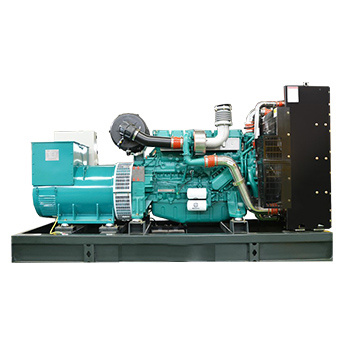The Essential Guide to Generator Sets: Understanding Their Role and Benefits
May 29,2025
Generator sets, commonly known as gensets, play a crucial role in providing reliable power solutions across various industries. These versatile systems convert mechanical energy into electrical energy, offering an essential backup during power outages and a primary source in remote locations. Understanding the functionality and advantages of generator sets can help professionals in the electrical

Generator sets, commonly known as gensets, play a crucial role in providing reliable power solutions across various industries. These versatile systems convert mechanical energy into electrical energy, offering an essential backup during power outages and a primary source in remote locations. Understanding the functionality and advantages of generator sets can help professionals in the electrical and power generation sectors make informed decisions when selecting and utilizing these vital systems.
A generator set typically consists of an engine, an alternator, a fuel system, a control panel, and a cooling system. The engine, which can be powered by diesel, natural gas, or gasoline, drives the alternator to produce electricity. The control panel monitors and manages the operation of the genset, ensuring efficient performance and safety. Understanding these components is essential for maintenance and troubleshooting, allowing operators to maximize the lifespan and reliability of the equipment.
One of the most significant benefits of generator sets is their ability to provide uninterrupted power supply. In critical applications such as hospitals, data centers, and manufacturing facilities, even a momentary loss of electricity can lead to severe consequences. Generator sets ensure that essential operations continue without interruption, safeguarding both productivity and safety.
Moreover, generator sets are highly adaptable. They can be used in various applications ranging from residential backup power to industrial-scale energy solutions. For construction sites or remote oil and gas operations, portable generator sets offer flexibility and mobility, enabling power generation wherever it is needed. This adaptability also extends to the ability to scale power output to match specific requirements, making gensets an economical choice for many businesses.
When selecting a generator set, professionals should consider factors such as the power capacity required, fuel type, and operational needs. Additionally, understanding the environmental impact and regulatory requirements associated with emissions can guide the choice of technology and model. Investing in a quality generator set not only enhances operational efficiency but also contributes to sustainability efforts.
Lastly, regular maintenance of generator sets cannot be overstated. Routine inspections and servicing ensure that the system operates effectively and reliably. This proactive approach minimizes the risk of unexpected failures and extends the lifespan of the equipment, ultimately leading to reduced operational costs.
In conclusion, generator sets are indispensable tools in the electrical and power generation industry. By comprehensively understanding their components, benefits, and maintenance needs, professionals can make informed decisions that enhance productivity and ensure continuous power supply across various applications.
A generator set typically consists of an engine, an alternator, a fuel system, a control panel, and a cooling system. The engine, which can be powered by diesel, natural gas, or gasoline, drives the alternator to produce electricity. The control panel monitors and manages the operation of the genset, ensuring efficient performance and safety. Understanding these components is essential for maintenance and troubleshooting, allowing operators to maximize the lifespan and reliability of the equipment.
One of the most significant benefits of generator sets is their ability to provide uninterrupted power supply. In critical applications such as hospitals, data centers, and manufacturing facilities, even a momentary loss of electricity can lead to severe consequences. Generator sets ensure that essential operations continue without interruption, safeguarding both productivity and safety.
Moreover, generator sets are highly adaptable. They can be used in various applications ranging from residential backup power to industrial-scale energy solutions. For construction sites or remote oil and gas operations, portable generator sets offer flexibility and mobility, enabling power generation wherever it is needed. This adaptability also extends to the ability to scale power output to match specific requirements, making gensets an economical choice for many businesses.
When selecting a generator set, professionals should consider factors such as the power capacity required, fuel type, and operational needs. Additionally, understanding the environmental impact and regulatory requirements associated with emissions can guide the choice of technology and model. Investing in a quality generator set not only enhances operational efficiency but also contributes to sustainability efforts.
Lastly, regular maintenance of generator sets cannot be overstated. Routine inspections and servicing ensure that the system operates effectively and reliably. This proactive approach minimizes the risk of unexpected failures and extends the lifespan of the equipment, ultimately leading to reduced operational costs.
In conclusion, generator sets are indispensable tools in the electrical and power generation industry. By comprehensively understanding their components, benefits, and maintenance needs, professionals can make informed decisions that enhance productivity and ensure continuous power supply across various applications.





